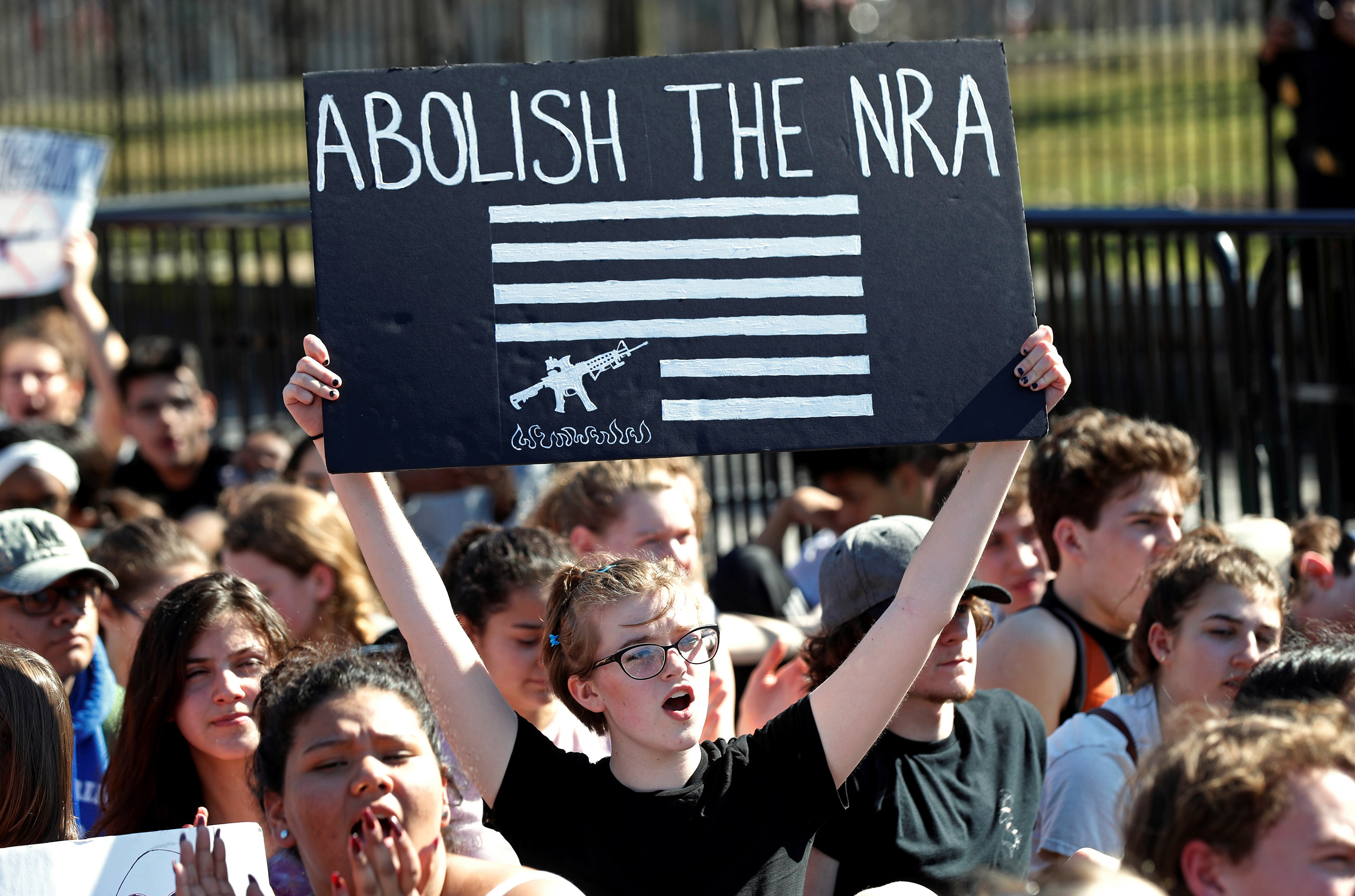Global justice systems under stress
Law enforcement and the Black experience. A surge in mass shootings and other gun violence. Clashes between human rights and religious beliefs. Obstacles to prosecuting terrorists – and calling repressive governments to account. Justice systems worldwide face every kind of stressor, from economic and political turmoil to flawed policing and governance in weak democracies – and even supposedly strong ones. People may disagree on what justice means, exactly. But they all know when it’s not working.
Kerry Paterson
“What I appreciate about the Munk School is the support you find for whatever project you want to take on. There’s a lot of space to be self-directed and a lot of encouragement to develop special-interest projects.”
This is the perspective of Munk School graduate Kerry Paterson, who earned her MGA in 2014 and is also an alumna of the undergraduate Peace, Conflict and Justice program. Now living in New York City, she is the global advocacy and communications manager at the U.S.-based Committee to Protect Journalists (CPJ), a non-profit organization that advocates for press freedom and works to save journalists from imprisonment and execution.
Paterson’s career is just getting under way, but the efforts she’s helping to advance are already having an impact – so much so that she recently received the Janice Stein Alumni Award, which recognizes MGA graduates who’ve shown exemplary innovative leadership in tackling global issues.
Among the CPJ’s recent initiatives is a campaign on behalf of Bheki Makhubu, a journalist in Swaziland who co-wrote a series of articles on the corrupt behaviour of a high-court justice – and then was sentenced by the same judge to 15 months in prison. Thanks to the hard work of Paterson and her colleagues, Makhubu has been spared further years behind bars after CPJ showed that the prosecution was “vindictive from the start.”
The organization also reports on threats to journalistic freedom closer to home. “We’ve done more research on Canada in the past year than ever before,” Paterson says. The CPJ has taken up the causes of VICE News reporter Ben Makuch and freelance journalist Justin Brake, both of whom face prosecution by Canadian authorities. “In our country, as in the U.S. and the U.K., journalists are growing increasingly concerned about surveillance and digital threats to their safety.”
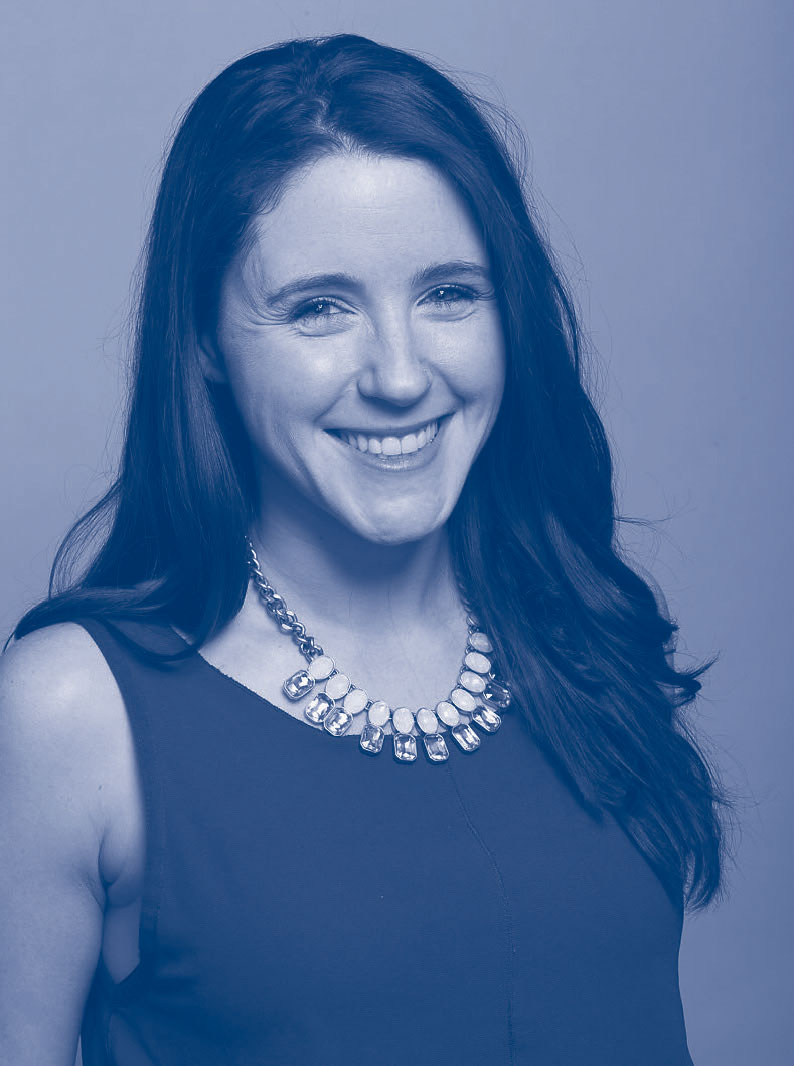
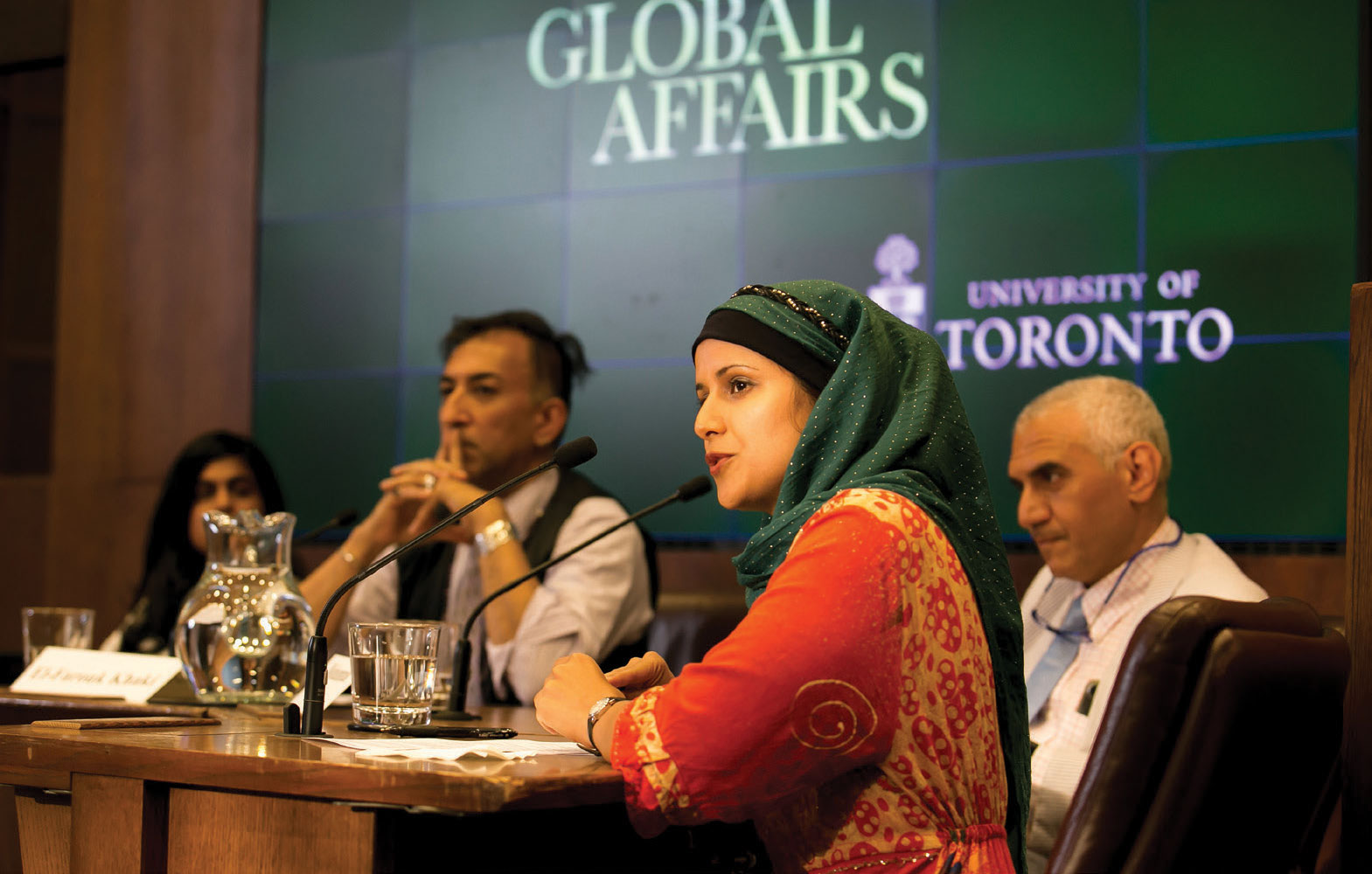
Sex and Islam panel (left to right): Ayesha S. Chaudhry, Canada Research Chair in Religion, Law and Social Justice and associate professor of Islamic studies and gender studies at the University of British Columbia; El-Farouk Khaki, imam, El-Tawhid Juma Circle; Aisha Ahmad, co-director of the Islam and Global Affairs Initiative at the Munk School of Global Affairs and assistant professor in the Department of Political Science at the University of Toronto; Mohammed Fadel, associate professor at the Faculty of Law and Canada Research Chair for the Law and Economics of Islamic Law, University of Toronto.
Photo: Dhoui Chang.
“Sex is the elephant in the room when we talk about issues of integration and human rights in relation to Islam.”
– Prof. Aisha Ahmad
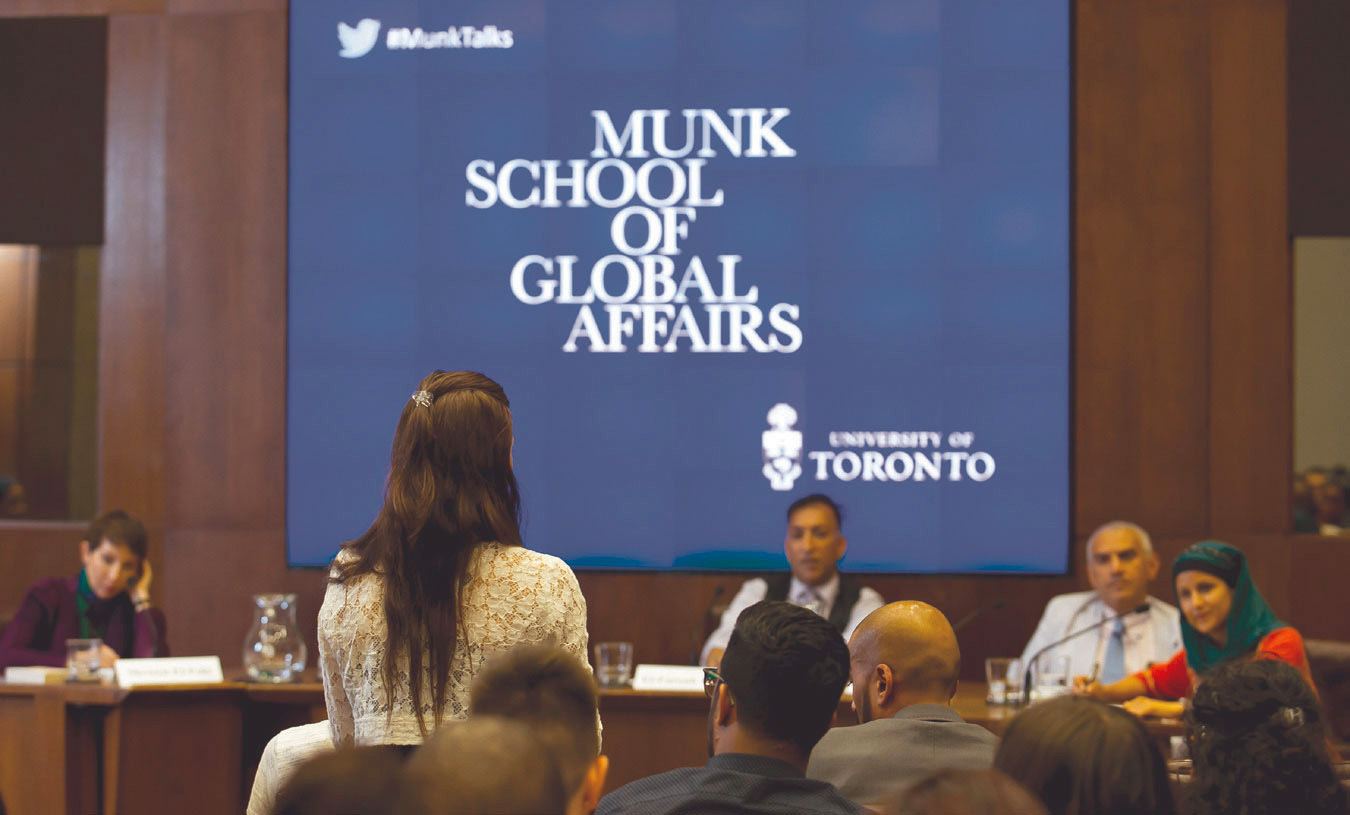
An audience member asks a question at the Sex and Islam panel. Left to right: Shereen El Feki, professor of global practice at the Munk School of Global Affairs, El-Farouk Khaki, Mohammed Fadel and Aisha Ahmad.
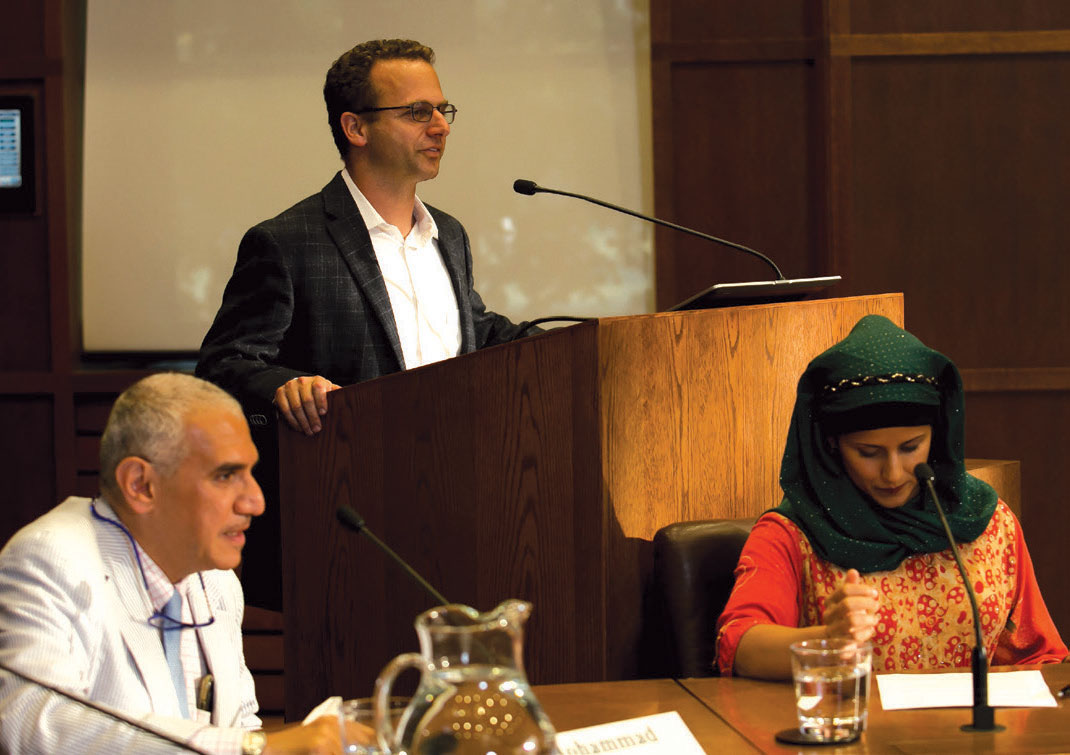
Syria Under Siege event (left to right): Mohammed Fadel, associate professor at the Faculty of Law and Canada Research Chair for the Law and Economics of Islamic Law, University of Toronto; Edward Schatz, co-director of the Islam and Global Affairs Initiative at the Munk School of Global Affairs, associated faculty with the Centre for European, Russian, and Eurasian Studies, and associate professor of political science; Aisha Ahmad, co-director of the Islam and Global Affairs Initiative at the Munk School of Global Affairs and assistant professor in the Department of Political Science at the University of Toronto.
Photos: Dhoui Chang.
Behind the Islamic Headlines
The evolution of jihadist organizations in the Middle East and North Africa. Sensitive questions of gender and sexuality in diverse Islamic societies. Xenophobic backlashes provoked by the flow of Muslim refugees into Europe and the U.S. These are the kinds of provocative issues examined by the Islam and Global Affairs Initiative, an interdisciplinary research network guided by its co-directors, Prof. Aisha Ahmad and Prof. Edward Schatz of the Munk School.
Bringing together researchers from a wide range of scholarly backgrounds, the Islam and Global Affairs Initiative regularly hosts public events that probe beneath the headlines to share deeper analytical insights. Two notable examples from the past year:
- Syria Under Siege, a March 2018 event moderated by Prof. Ahmad, illuminated the plight of tens of thousands of people caught in the crossfire of civil war, enduring aerial bombardment, blocked roads and severe shortages of food and medical aid. A panel of international experts looked at all dimensions of the conflict, from the worsening humanitarian crisis to the role of external actors such as Russia, the U.S., Iran, Turkey and neighbouring Arab states. A web of alliances, betrayals and secret intrigues has turned the Syrian civil war into one of the most complicated conflicts the world has seen. And even though there is no resolution in sight, the Munk School audience at least came away with a deeper understanding of where hope might somehow take root.
- Sex and Islam: From LGBTQ Rights to Muslim Feminists was a September 2017 event examining ideas that are rarely discussed in open forums. But behind the extremist views that claim media attention, the majority of Muslims around the globe have life experiences that are as nuanced and diverse as humanity itself – including how they choose to express their sexuality. “Sex is the elephant in the room when we talk about issues of integration and human rights in relation to Islam,” says Prof. Ahmad, who welcomed an audience of students, academics and community members to “a sophisticated, scholarly conversation that explores how these dynamics play out at a global level.”
Justice Without Borders
Since 2016, the Munk School’s Global Justice Lab, under the directorship of Prof. Ron Levi, has operated a project called Inside Justice – an experiment in peer-based research and collaboration that brings together government officials and other experts from around the world to redefine persistent problems in criminal justice. Supported by
the Open Society Foundations, the project aims to train and support a global response team that can help to resolve issues in countries facing urgent justice, security and legal development challenges.
The scope of initiatives undertaken by the Inside Justice network is reflected in three highlights from the past year:
- The second annual Workshop on Indicators for Nigerian Justice Officials invited 17 leaders of government agencies to develop potential reform strategies for Africa’s most populous nation. Part of an ongoing collaboration between Inside Justice and the rule of law advisor to the vice-president of Nigeria, the October 2017 workshop focused in particular on police accountability, pre-trial detention, court efficiency and effectiveness, and anti-corruption efforts.
- In November 2017, Inside Justice convened the first annual Toronto Seminar in Justice Governance, hosted in partnership with the Ontario Ministry of Community Safety and Correctional Services. Participants included justice practitioners and policy-makers from Canada, the U.S., the U.K., Ukraine and Pakistan, who shared their experiences in working to improve the oversight and accountability of police forces.
- In the spring of 2018, Inside Justice hosted the second in a series of meetings gathering Latin American homicide investigators and prosecutors to discuss changes in policy and practice. The project also organized colloquia on community safety and well-being, and on the design of Ontario’s new Office of the Inspector General of Police.

